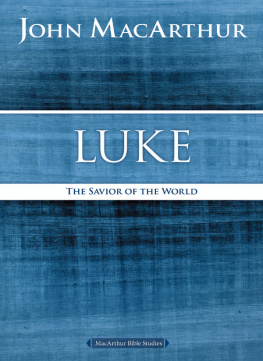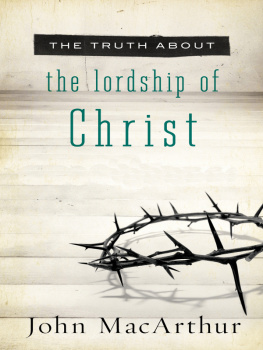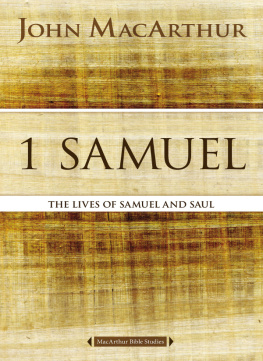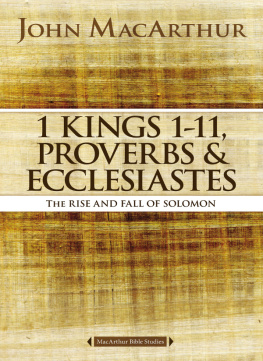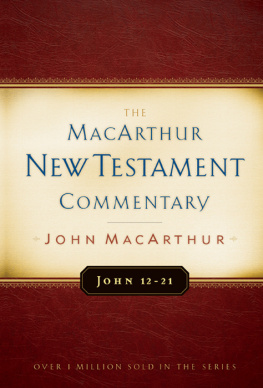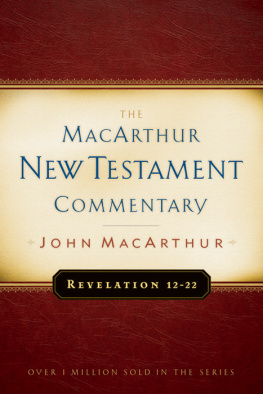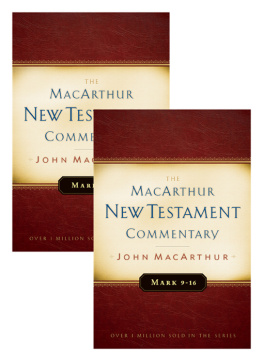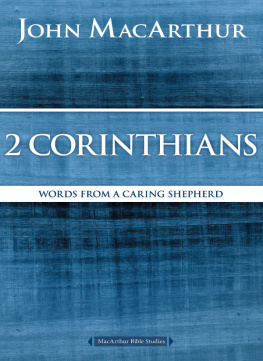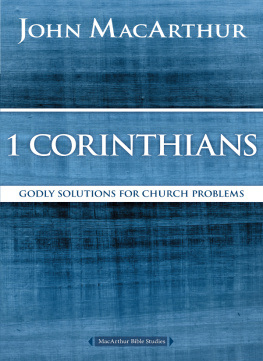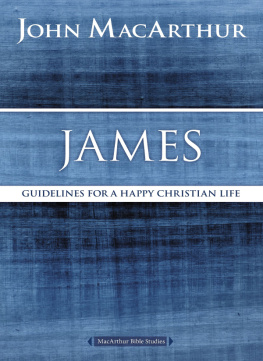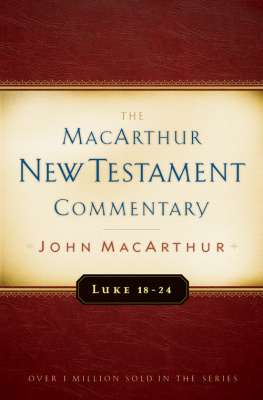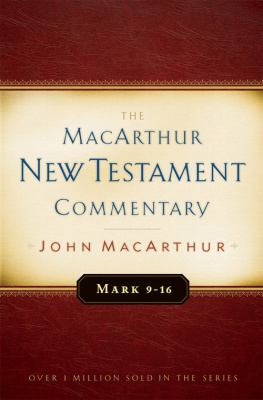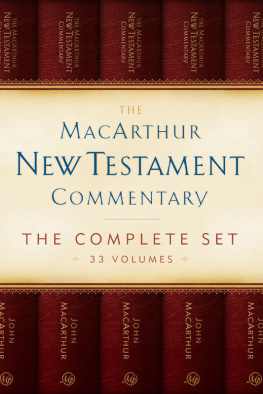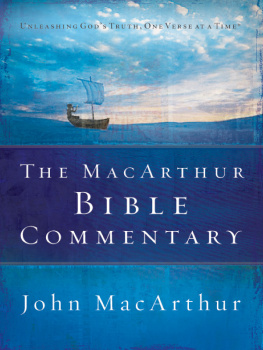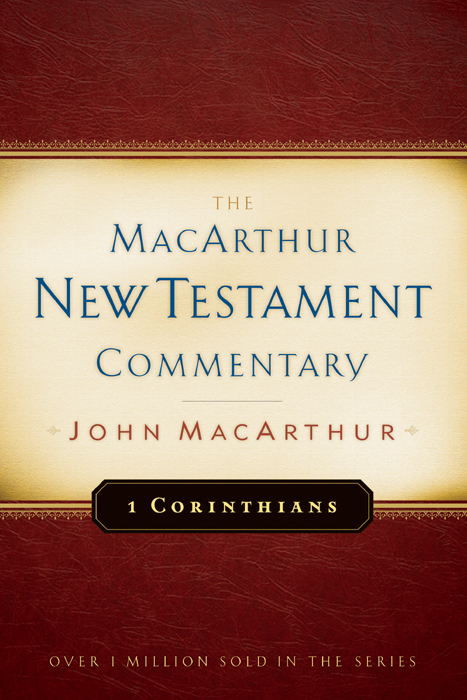It continues to be a rewarding divine communion for me to preach expositionally through the New Testament. My goal is always to have deep fellowship with the Lord in the understanding of His Word, and out of that experience to explain to His people what a passage means. In the words of Nehemiah 8:8, I strive to give the sense of it so they may truly hear God speak and, in so doing, may respond to Him.
Obviously, Gods people need to understand Him, which demands knowing His Word of truth (2 Tim. 2:15) and allowing that Word to dwell in us richly (Col. 3:16). The dominant thrust of my ministry, therefore, is to help make Gods living Word alive to His people. It is a refreshing adventure.
This New Testament commentary series reflects this objective of explaining and applying Scripture. Some commentaries are primarily linguistic, others are mostly theological, and some are mainly homiletical. This one is basically explanatory, or expository. It is not linguistically technical, but deals with linguistics when this seems helpful to proper interpretation. It is not theologically expansive, but focuses on the major doctrines in each text and on how they relate to the whole of Scripture. It is not primarily homiletical, though each unit of thought is generally treated as one chapter, with a clear outline and logical flow of thought. Most truths are illustrated and applied with other Scripture. After establishing the context of a passage, I have tried to follow closely the writers development and reasoning.
My prayer is that each reader will fully understand what the Holy Spirit is saying through this part of His Word, so that His revelation may lodge in the minds of believers and bring greater obedience and faithfulnessto the glory of our great God.
Introduction
Today Corinth is a small town with little significance other than historical. But in New Testament times it was a thriving, prosperous, and strategically located city.
Greece is divided geographically into two parts. The southern part, the Peloponnesus, is attached to the northern by a very narrow, four-mile-wide isthmus. On the western side was the Gulf of Corinth and the port city of Lechaeum. On the eastern side was the Saronic Gulf and the port city of Cenchreae. In the middle of the isthmus, to the south, is Corinth, situated on a commanding plateau. In ancient times all north and south overland traffic, including that to and from Athens, had to pass through Corinth.
Sea travel around the Peloponnesus was both time-consuming and dangerous. It was so treacherous that mariners had the saying A sailor never takes a journey around Malea [the cape at the south end of the peninsula] until he first writes his will. Most captains, therefore, chose to carry their ships overland on skids or rollers across the narrow isthmus, directly past Corinth. This procedure was quicker, more economical, and much safer than sailing 250 miles around the peninsula. In fact, the isthmus came to be known as dialcos, which means the place of dragging across. Corinth benefited from traffic in all directions and consequently became a major trade center.
Today a canalenvisioned by Perisander in the sixth century B.C., begun by the Roman emperor Nero in the first century A.D. , but not completed until the end of the nineteenth centuryconnects the two gulfs across the isthmus, greatly facilitating maritime travel.
Corinth was also successful as an entertainment center. The two great athletic festivals of that day were the Olympian and the Isthmian games, and Corinth was host city for the latternamed after and played on the Isthmus of Corinth.
Corinth had been destroyed by the Romans in 146 B.C . and then rebuilt by Julius Caesar a hundred years later. At first it was a Roman colony, largely populated by Romans, and eventually became the capital of the Roman province of Achaia. Because of its location it soon became again a major trade center, with the resulting cosmopolitan population. It was made up of Greeks, Roman officials and businessmen, and Near Eastern peoples, including many Jews.
Like most Greek cities, Corinth had an acropolis (literally, high city), called Acrocorinth, which was used as a place of defense and for pagan worship. From its top on a clear day Athens can be seen, some forty-five miles away. Situated on a 2,000-foot high granite mound, Acrocorinth was large enough to hold all the population of Corinth and of its surrounding farmlands in time of siege. It also held a famous temple to Aphrodite, goddess of love. The temple normally housed some one thousand priestesses, ritual prostitutes, who each night would come down into Corinth and ply their trade among the many foreign travelers and the local men.
Even to the pagan world the city was known for its moral corruption, so much so that in classical Greek corinthiazesthai (to behave like a Corinthian) came to represent gross immorality and drunken debauchery. The name of the city became synonymous with moral depravity. In this letter to the church there, Paul lists some of the citys characteristic sinsfornication (porneia, from which comes our term pornography), idolatry, adultery, effeminacy, homosexuality, stealing, covetousness, drunkenness, reviling (abusive speech), and swindling (6:9-10).
Some of the Corinthian believers had been guilty of practicing those sins before their conversion and had been cleansed (6:11). Others in the church, however, were still living immorally, some involved in sins worse than thosesins that Paul reminds them even pagan Gentiles did not commit, such as incest (5:1).
F OUNDING OF THE C HURCH AT C ORINTH
Paul first came to Corinth on his second missionary journey. He had been preaching and working in Macedonian/Greek cities for some time. From Philippi (where he first ministered in Europe), he had gone to Thessalonica, Berea, Athens, and then Corinth (Acts 16:11-18:1).
Upon arriving in Corinth he met Aquila and Priscilla, Jews who had been driven out of Rome, and who were, like himself, tentmakers. He stayed with them for a while and began to preach regularly in the synagogue every Sabbath. Silas and Timothy joined him from Macedonia, and, as Pauls preaching intensified, so did resistance to his message. Soon, however, many Corinthians, including Jews, began to believe in Christ. Even Crispus, leader of the synagogue, along with his household, trusted in the Lord (Acts 18:8).



